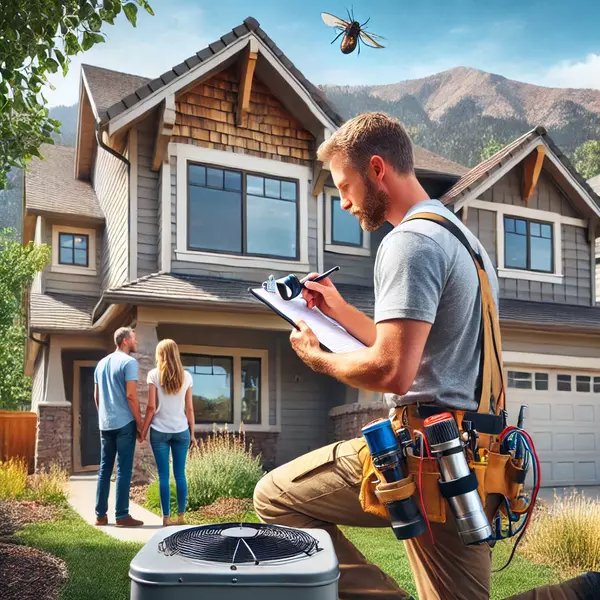Home Inspection Essentials in Denver: What Every Buyer and Seller Should Know.

When buying or selling a home in the Denver Metro area, one of the most important steps is the home inspection. It’s a crucial moment for both buyers and sellers, as it can reveal potential issues that may affect the sale and offer peace of mind. Whether you're a first-time homebuyer or a seasoned seller, understanding the ins and outs of home inspections can help ensure a smoother real estate transaction.
What Is a Home Inspection?
A home inspection is an independent, visual assessment of a property's condition, usually performed after an offer has been accepted but before the sale is finalized. The inspector examines everything from the foundation and roof to plumbing and electrical systems. The goal is to uncover any potential issues or defects that may not be visible during an initial walkthrough.
Why Home Inspections Matter
For buyers, an inspection helps to identify any major repairs or maintenance issues before committing to the purchase. It can also give you leverage when negotiating with the seller, especially if significant problems are found.
For sellers, scheduling a pre-inspection before listing can help you address potential issues upfront. This could prevent surprises during the sale process and give you confidence when pricing your home.
Common Issues Found in Denver Home Inspections
In the Denver Metro area, homes face unique challenges due to the climate and geography. Some common issues inspectors may find include:
1. Foundation Cracks: Colorado's clay-rich soil can expand and contract, leading to foundation movement and cracking.
2. Roof Damage: Due to high winds and hail, roofs in the area often show signs of wear and tear earlier than in other regions.
3. Radon: Denver homes are particularly prone to elevated radon levels due to our position on the Rocky Mountain Front Range. A radon test is a must during inspections.
4. HVAC Issues: With Colorado’s varying temperatures, heating and cooling systems often work overtime. It’s common for inspectors to flag aging or inefficient systems that may need repairs or replacement.
5. Water Drainage Problems: Given our occasional heavy rainstorms, drainage issues around the foundation can cause long-term problems if not properly managed.
What Buyers Should Expect During the Inspection
For buyers, it's important to attend the inspection, or at least the final walk-through. This allows you to ask questions and get a clear understanding of any issues that arise. After the inspection, you’ll receive a detailed report outlining the inspector's findings.
If problems are discovered, you can negotiate with the seller to make repairs or adjust the price. Keep in mind that no home is perfect, especially in older neighborhoods. The key is to focus on major concerns that affect the home’s safety or functionality.
What Sellers Should Know
As a seller, consider getting a pre-listing inspection. This allows you to fix any problems before potential buyers see them. A pre-inspection can give you the upper hand by addressing issues on your own terms, which may even increase buyer confidence and lead to a smoother sale process.
If you choose not to get a pre-listing inspection, be prepared for potential renegotiations after the buyer’s inspection report. The more proactive you are in maintaining your home, the fewer surprises you'll face later.
Tips for a Successful Home Inspection
Whether you’re buying or selling, here are a few tips to ensure the inspection process goes smoothly:
- For Sellers:
- Make sure all areas of the home are accessible, including the attic, basement, and crawl spaces.
- Provide documentation of any recent repairs or improvements.
- Declutter and clean to make a good impression.
- For Buyers:
- Hire a licensed, reputable inspector familiar with Denver’s market and housing issues.
- Ask questions about the inspector’s findings and don’t be afraid to request further clarification.
- Use the inspection report as a tool for informed negotiation, but be realistic—minor wear and tear is normal in any home. Final Thoughts
A home inspection is a vital step in the real estate process, whether you’re buying or selling. By being proactive, understanding the inspection process, and knowing what to expect, you can avoid surprises and make well-informed decisions. As always, working with an experienced real estate professional can help guide you through this process and ensure that your transaction goes as smoothly as possible.
If you have questions or need a referral to a trusted home inspector in the Denver area, feel free to reach out. My team and I are here to help!
Categories
Recent Posts










